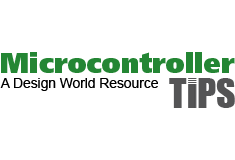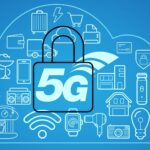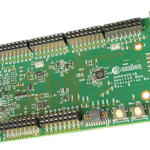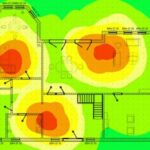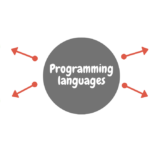Silicon Labs, a provider of secure, intelligent wireless technology for a more connected world, announced its new, Bluetooth Location Services solution. It uses accurate, low-power Bluetooth devices to simplify the Angle of Arrival (AoA) and Angle of Departure (AoD) location services.
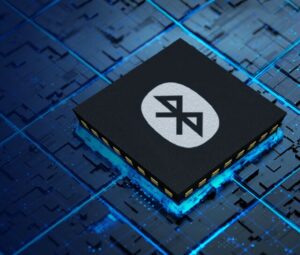 With combined hardware and software, this new platform delivers energy efficiency by using Silicon Labs’ BG22 SiP modules and SoCs. They can operate for up to 10 years on only a coin cell battery with advanced software that can track assets, improve indoor navigation, and better locate tags with sub-meter accuracy.
With combined hardware and software, this new platform delivers energy efficiency by using Silicon Labs’ BG22 SiP modules and SoCs. They can operate for up to 10 years on only a coin cell battery with advanced software that can track assets, improve indoor navigation, and better locate tags with sub-meter accuracy.
Borda Technology is one of the first companies to adopt this new platform. Borda provides “IoT for Healthcare” products, such as Asset Management, Asset Utilization, Patient Throughput Management and Patient Flow, Patient Safety, and more through real-time location services (RTLS).
“As the largest, pure-play IoT company in the world, we focus on providing complete wireless IoT solutions for the edge, including silicon, software, tools, and support,” said Daniel Cooley, CTO of Silicon Labs. “Today’s new Bluetooth location services offering further proves our belief that we can deliver differentiated solutions to our customers by thinking of IoT as a complete platform, rather than a singular piece of hardware.”
Location barriers
In many industries, locating inventory and physical assets can often be a time-consuming process. It can also lead to waste, as assets are lost behind shelves or in unexpected locations. This is a problem across many industries, such as an assembly line for an automotive manufacturer with an average of 30,000 parts per vehicle, or a pharmaceutical company where quantities of drug ingredients need to be monitored to the smallest measure.
While there are several existing location-based technologies, they are plagued by limitations that affect their usefulness at scale. GPS is ineffective indoors, Wi-Fi has varying degrees of accuracy, and the very-accurate ultra-wideband (UWB) can be more expensive than other solutions and has high energy requirements.
Bluetooth is a mature technology that can overcome many of these barriers with new software.
Sub-meter accuracy
When Bluetooth 5.1 was released in early 2019, some of the new key features were improved location services. Building off of that, Silicon Labs has developed new advanced software, designed to maximize the location-finding capabilities of our BG22 series of SoCs and SiP modules. The new features are comprised of the following:
- Asynchronous continued tone extension (CTE) broadcasts from the device to the locator. Asynchronous broadcast eliminates the need for synchronized transmission timings between the device and locator, thereby enabling the locators to track a large number of assets simultaneously and multiple locators to simultaneously see the same asset at the same time for triangulation.
- Broad-spectrum CTE broadcast across all 37 channels to reduce interference by moving the CTE transmissions from advertisement to data channels.
These new features enhance Silicon Labs’ Bluetooth software portfolio, one of the most comprehensive solutions available for accelerating development of direction-finding applications. With additional development tools specifically designed to accelerate development of direction-finding applications. Silicon Labs’ portfolio positions developers and designers to build a wide range of IoT location service applications that can meet the unique needs of every environment and deployment.
This new software runs on the BG22 family of Bluetooth low energy (LE) SoCs and SiPs, the smallest in Silicon Labs’ portfolio. This product family combines best-in-class, ultra-low transmit and receive power (4.1 mA TX at 0 dBm, 3.6 mA RX) with a high-performance, low-power ARM® Cortex®-M33 core (27 µA/MHz active, 1.2 µA sleep). Altogether, these deliver industry-leading energy efficiency, extending coin-cell battery life up to ten years.
Improving operational efficiency and care
Hospitals are constantly buzzing with activity, from specialized equipment moving from room to room, to patients moving throughout the facility, to drugs being administered, down to cleaning and sterilization services.
These tasks use countless pieces of individual hospital assets that must be carefully tracked to ensure they can be located when they’re required, arrive on time, and are accounted for. This can be time-consuming when time is precious. One study recently found that in a single shift, nurses spend over an hour on average trying to track down the equipment they need to do their jobs.
Borda Technology seeks to change that by using RTLS asset tracking capabilities, which can reduce the time it takes to search for equipment, so employees can focus on patient care. Using the new Silicon Labs AoA and AoD software, running on BG22 Bluetooth SoCs, Borda introduced new tamper-proof asset tracking tags that help locate an item and provide staff with operational insights when making informed healthcare and business decisions.
For example, the Borda solution prevents uncalibrated equipment from use by setting alarms that can alert staff to equipment that needs attention, preventing dangerous or life-threatening accidents.
Silicon Labs’ holistic, platform-centric approach to Bluetooth location services and the simplicity of the BG22 has helped Borda dramatically decrease how long it takes to install its solution. What once took months, can now be up and running in just weeks.
